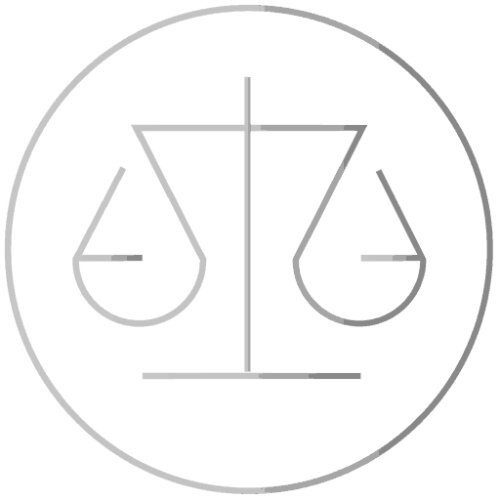Best Whistleblower & Qui Tam Lawyers in Larnaca
Share your needs with us, get contacted by law firms.
Free. Takes 2 min.
List of the best lawyers in Larnaca, Cyprus
About Whistleblower & Qui Tam Law in Larnaca, Cyprus
Whistleblower and Qui Tam laws are designed to protect individuals who report illegal activities or fraud, often within an organization, and to allow them to participate in legal actions against those entities committing fraud. In Larnaca, Cyprus, these laws aim to ensure transparency and accountability in both public and private sectors. By encouraging whistleblowing, Cyprus seeks to combat corruption and maintain ethical standards across various industries.
Why You May Need a Lawyer
Seeking legal advice can be crucial for various reasons when dealing with Whistleblower & Qui Tam cases. Here are common situations where legal help may be necessary:
- Understanding Legal Protections: A lawyer can clarify the protections you are entitled to under Cypriot law when you blow the whistle on illegal activities.
- Filing a Qui Tam Case: If you wish to file a Qui Tam lawsuit, a lawyer can guide you through the complexities of the legal process and help you compile the necessary documentation and evidence.
- Retaliation Concerns: Legal experts can provide guidance and representation if you face retaliation from your employer or others because of your whistleblowing activities.
- Navigating Confidentiality: Lawyers ensure that your identity and actions are kept confidential when required by law.
- Maximizing Rewards: Proper legal representation can help you receive any rewards you are entitled to under Qui Tam provisions.
Local Laws Overview
The legal framework in Cyprus concerning whistleblowers and Qui Tam actions includes several key provisions:
- Law on the Protection of Reporting Persons (2020): This law provides comprehensive protection to individuals who report violations, ensuring their safety and confidentiality.
- False Claims Act: Although not as elaborately developed as in other jurisdictions, Cyprus has provisions that align with Qui Tam laws, allowing individuals to sue on behalf of the government.
- Retaliation Protection: Local laws prohibit retaliation against employees who report illegal activities, providing various remedies, including reinstatement and compensation.
- Anti-Corruption Legislation: Cyprus has a strong commitment to anti-corruption, with laws that encourage transparency and accountability within organizations.
Frequently Asked Questions
1. What is whistleblowing?
Whistleblowing involves reporting illegal or unethical activities within an organization to authorities or regulatory bodies. These activities can include fraud, corruption, safety violations, and more.
2. What is a Qui Tam lawsuit?
A Qui Tam lawsuit is a legal action brought by a private individual on behalf of the government, against a person or entity suspected of committing fraud against the government.
3. Am I protected as a whistleblower in Cyprus?
Yes, the Law on the Protection of Reporting Persons (2020) ensures that whistleblowers are protected from retaliation and their identity is kept confidential.
4. Can I remain anonymous when whistleblowing?
Depending on the circumstances, you can report anonymously, but it may limit the ability of authorities to follow up effectively. Consult a lawyer for strategies to protect your identity.
5. What types of misconduct can be reported under whistleblower protection laws?
Common types include fraud, abuse of power, corruption, safety violations, and environmental breaches.
6. Can I get a reward for whistleblowing?
In some cases, particularly under Qui Tam provisions, whistleblowers may receive a financial reward if their information leads to successful legal action and recovery of funds.
7. How do I file a Qui Tam lawsuit in Cyprus?
To file a Qui Tam lawsuit, it is advisable to consult with a lawyer who specializes in this area. They will guide you on compiling evidence and submitting your claim.
8. What should I do if I face retaliation for whistleblowing?
Immediately seek legal assistance to safeguard your rights. The law provides remedies including reinstatement, compensation, and protective measures.
9. How long do I have to file a claim?
Timelines can vary, so it is important to act quickly and consult a lawyer to ensure your claim is filed within the statutory period.
10. What evidence do I need for a whistleblower or Qui Tam case?
Documented proof of the alleged misconduct, such as emails, internal reports, financial statements, or any other relevant information will be essential.
Additional Resources
In addition to consulting with a lawyer, these resources can be helpful:
- Cyprus Integrity Forum: An NGO focusing on promoting integrity and fighting corruption in Cyprus.
- Office of the Commissioner for Administration and the Protection of Human Rights (Ombudsman): Provides assistance and protection to whistleblowers.
- The Ministry of Justice and Public Order: Responsible for upholding justice and legal standards in Cyprus.
- Transparency International Cyprus: An organization that provides guidance and support for combating corruption.
Next Steps
If you require legal assistance with a whistleblower or Qui Tam case, consider taking the following steps:
- Document Everything: Collect all relevant evidence that supports your claim. This can include emails, reports, and other documentation.
- Consult a Lawyer: Seeking specialized legal advice is crucial. A lawyer can guide you through the legal process and protect your rights.
- File Your Claim: Work with your lawyer to file your whistleblower report or Qui Tam lawsuit correctly and within the appropriate timelines.
- Prioritize Your Safety: Ensure that you take all necessary precautions to protect yourself from retaliation.
The above steps will help you navigate the legal landscape effectively and safeguard your rights and interests in the process.
Lawzana helps you find the best lawyers and law firms in Larnaca through a curated and pre-screened list of qualified legal professionals. Our platform offers rankings and detailed profiles of attorneys and law firms, allowing you to compare based on practice areas, including Whistleblower & Qui Tam, experience, and client feedback.
Each profile includes a description of the firm's areas of practice, client reviews, team members and partners, year of establishment, spoken languages, office locations, contact information, social media presence, and any published articles or resources. Most firms on our platform speak English and are experienced in both local and international legal matters.
Get a quote from top-rated law firms in Larnaca, Cyprus — quickly, securely, and without unnecessary hassle.
Disclaimer:
The information provided on this page is for general informational purposes only and does not constitute legal advice. While we strive to ensure the accuracy and relevance of the content, legal information may change over time, and interpretations of the law can vary. You should always consult with a qualified legal professional for advice specific to your situation.
We disclaim all liability for actions taken or not taken based on the content of this page. If you believe any information is incorrect or outdated, please contact us, and we will review and update it where appropriate.










